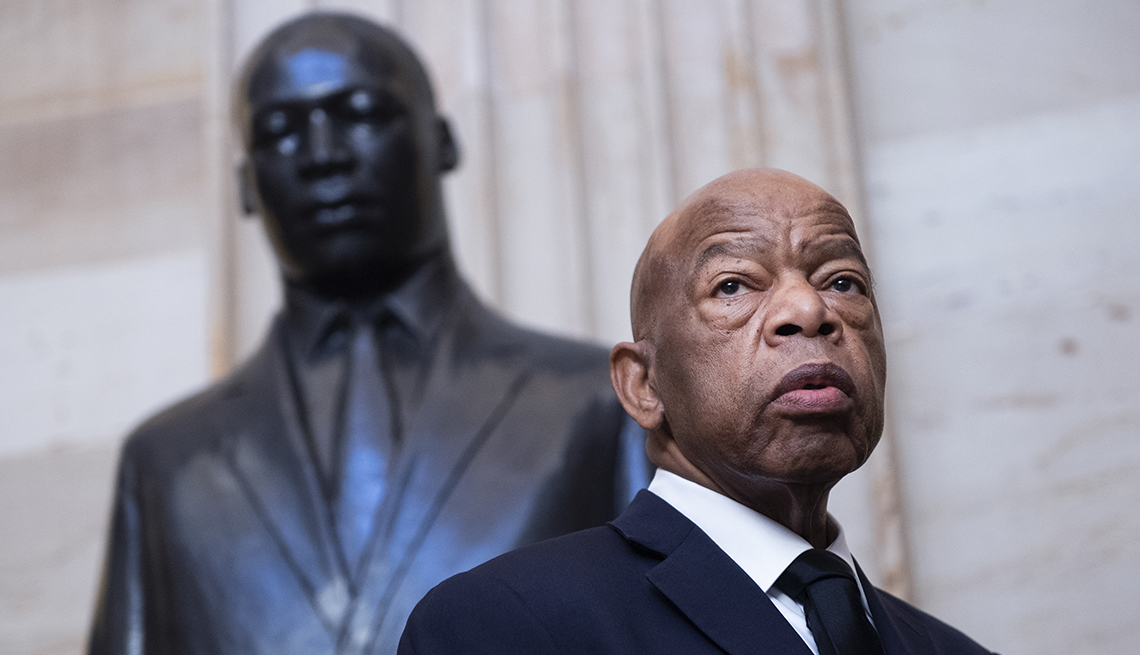Play all audios:
Civil rights icon John R. Lewis, the last surviving speaker of the 1963 March on Washington, died July 17, less than seven months after announcing that he had been diagnosed with advanced
pancreatic cancer. The Atlanta resident, 80, was a veteran not only of 33 years in Congress but also of the March 7, 1965, Bloody Sunday march across the Edmund Pettus Bridge in Selma,
Alabama. At age 25, walking at the head of the march with his hands tucked in the pockets of his tan overcoat, he was knocked to the ground and beaten by white police officers. His skull was
fractured, and nationally televised images of the brutality focused the country's attention on racial oppression in the South. "Congressman John Lewis was a true example of
leadership,” said Jo Ann Jenkins, AARP's chief executive officer. “He dedicated his life to equal justice for all Americans, bringing moral clarity to our national dialogue and
inspiring individuals no matter what race, or party, or age or religion. Rep. Lewis was an icon for generations of Americans, from his march in Selma that led to the Voting Rights Act, to
his work to end discrimination against LGBTQ Americans." YOUNGEST OF THE ‘BIG SIX' Lewis was the youngest of the Big Six civil rights activists, a group led by the Rev. Martin
Luther King Jr. that had the greatest effect on the civil rights movement. Lewis’ beating led President Lyndon Johnson to press Congress to pass the Voting Rights Act. The bill became law
later in 1965, removing barriers that had barred blacks from voting. "He loved this country so much that he risked his life and his blood so that it might live up to its promise,”
President Barack Obama said in a statement after Lewis’ death. “And through the decades, he not only gave all of himself to the cause of freedom and justice but inspired generations that
followed to try to live up to his example." Lewis spent the final months of his life witnessing, if from the sidelines, seismic changes within American society. He viewed the recent
protests for racial justice as a continuation of his life's work and expressed pride in demonstrators carrying on his legacy of what he long referred to as “good trouble." AMONG
THE ORIGINAL FREEDOM RIDERS Lewis was born Feb. 21, 1940, near Troy, Alabama, and attended segregated schools. He graduated from American Baptist Theological Seminary in Nashville,
Tennessee, and also earned a bachelor's degree in religion and philosophy from Fisk University in Nashville.

